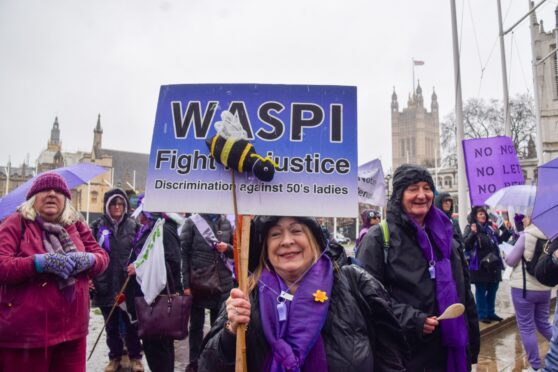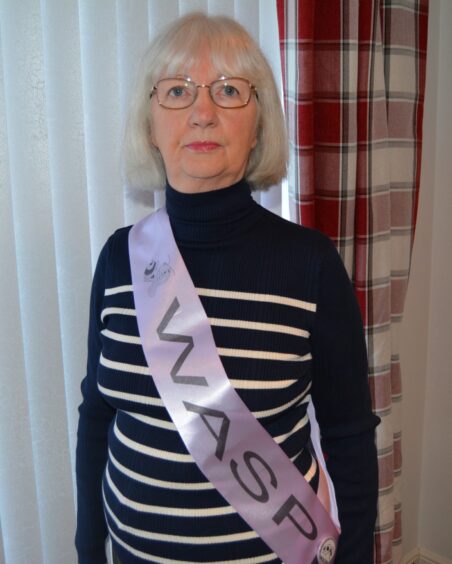
A grandmother revealed how families have been split up because of the impact of years of lost state pensions for women.
Susan Bolland, 68, says she and her husband had to move almost 500 miles from their home in Poole, Dorset, to Irvine when she discovered her state pension had been delayed by six years – losing her £45,000.
The UK government pushed state pensions back from 60 for women leaving millions facing a poorer old age. The former military wife, who spent 23 years bringing up her three children, while her husband served his country, says they could no longer afford to live in the south of England.
It meant leaving her three grown-up children and six grandchildren behind to survive in retirement. Susan said: “I am one of a generation of mothers who had little opportunity to join any company pension scheme. We moved house 14 times when my husband was serving with the Royal Marine Commandos and, like many military wives, my duty was to the care for our children and take temporary jobs whenever possible.
“Moving back to Scotland was the only way we could afford to live in retirement.”
Waspi women
She is one of 3.6 million UK women campaigning with Women Against State Pension Inequality (Waspi).
Many say they were not informed by the UK government that the pension age would rise to 65 for them and upwards, currently now 66 with plans to increase it further.
It affects women born in the 1950s.
“Many women who brought up their children on their own, with no partner in later life, have lost out seriously,” Susan added.
“Some have had to move into caravans because they are totally dependent on state benefits and are not well enough to work.
“Others have to remain employed in outdoor jobs until their state pension begins. A number in care jobs are working on long shift work.”
The women’s fight for justice is backed by the Parliamentary and Health Service Ombudsman (PHSO) finding last week which declared that the women should be compensated.
It said the Department for Work and Pensions (DWP) failed to adequately communicate changes to women’s state pension age.
The DWP has not acknowledged its failings or compensated the women and the PHSO has called on UK Parliament to intervene.
The ombudsman suggests women should receive payouts of between £1,000 and £2,950. But campaigners want £10,000 each.
The Westminster government said it would consider the report.
Like many Waspi women Susan said she only discovered her state pension was delayed when she was in her late fifties. She added: “I assumed, like millions of other women, that we would be treated fairly.
“Our Cunninghame Waspi group are angry and dismayed that some women born in the 1950s do not live to see a state pension.
“One UK Waspi woman dies every 13 minutes and that is hardly a compassionate or just way to treat women who gave their all, in life.
“Until 66, then we are described as economically inactive by the government if we are not still working.”

Enjoy the convenience of having The Sunday Post delivered as a digital ePaper straight to your smartphone, tablet or computer.
Subscribe for only £5.49 a month and enjoy all the benefits of the printed paper as a digital replica.
Subscribe